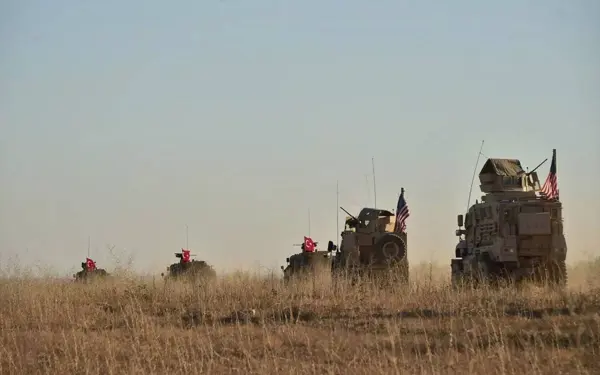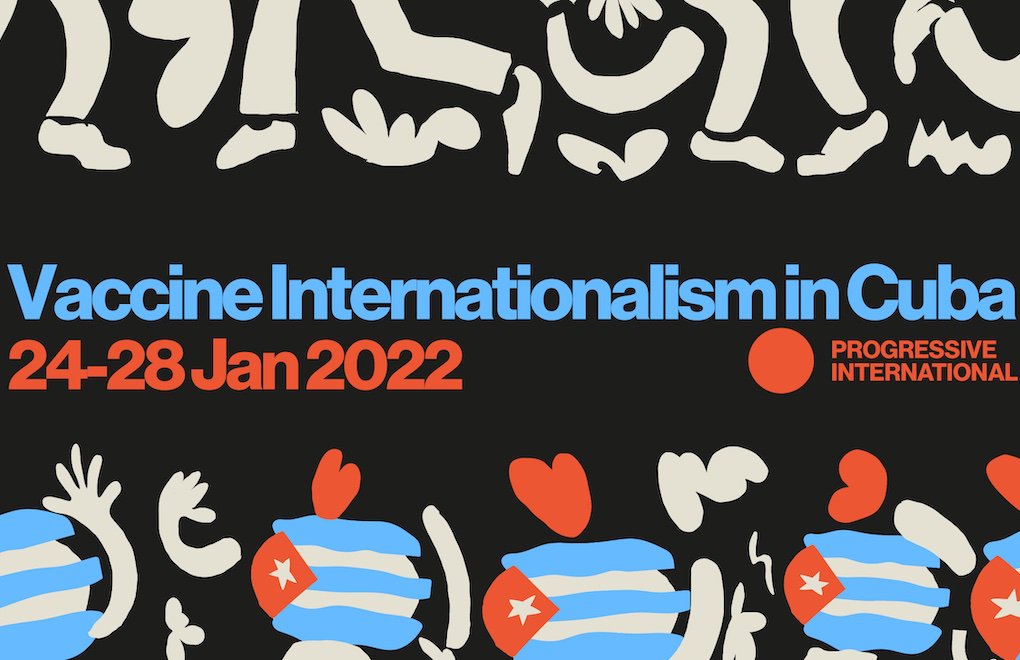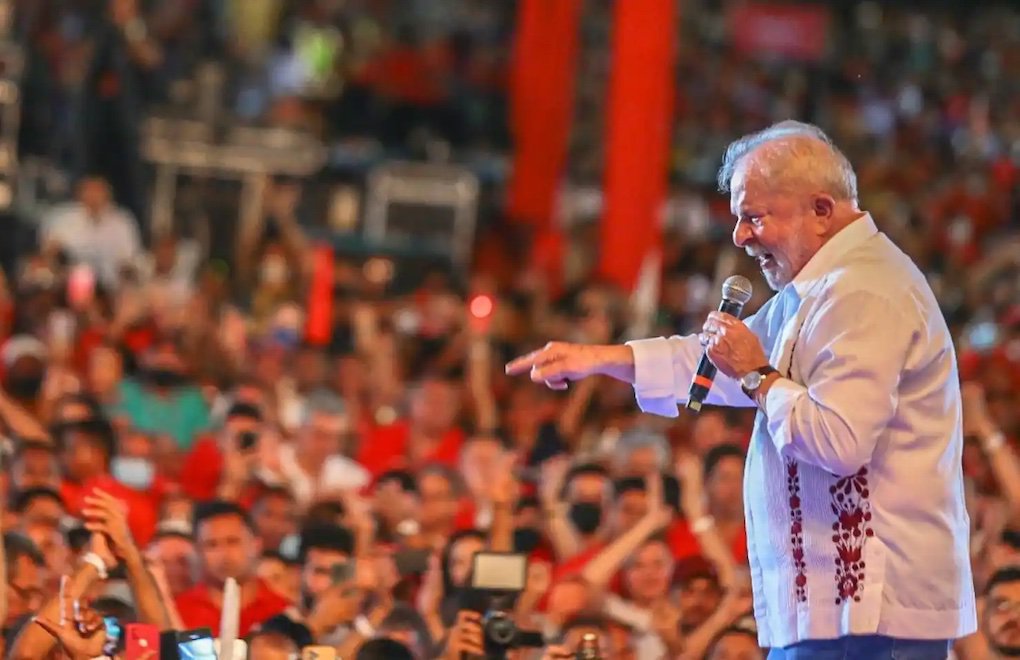An official document recently leaked from Turkish Prime Minister Bulent Ecevit's office unveils a shift in Ankara's feelings toward the expected operation: having failed to forestall it, Turkey will try to make the best of it. Code-named "B.020" and signed by Ecevit, the document reads in part: "There is no doubt that the emergence on our southeastern borders of a democratic Iraq with good relations with the West is extremely valuable for our strategic interests." In a televised interview last week, a visibly worried Ecevit admitted that "US officials have already expressed their determination for an attack against Iraq. They don't simply imply this, but openly express it. We are preparing both politically and militarily."
A particular clause of B.020 known in military circles as "The Red Line" states Ankara's major concern about the prospect of the replacement of the Ba'thist regime in Baghdad. If the Bush administration is determined to go to war, the Turkish government has underlined its determination to prevent, at any price, Kurdish independence in a post-Saddam Iraq, or the emergence of any Kurdish entity with recognized standing in the international community. Even Kurdish autonomy within a federated Iraq, Turkey fears, may stir up trouble on its southeastern border if the central government in Baghdad does not tightly control the rival factions which presently control two Kurdish enclaves in northern Iraq. "Ethnic minorities in Iraq should be prevented from establishing separate administrations," states B.020. "Declarations in this direction will be a cause for intervention on our part." The document continues: "Relations [between Baghdad and the Kurdish parties] should be based on a broader framework ensuring that the [larger Kurdish] region remains politically and economically dependent on Turkey."
Meanwhile, on August 2 the Turkish parliament rushed to pass a raft of legislation designed to bring Turkish law into conformity with the European Union's "Copenhagen Criteria" -- a precondition to start negotiations for Turkey's accession to EU membership. Over the vocal opposition of the right-wing nationalist party, which holds the largest number of seats in Parliament, pro-EU lawmakers abolished capital punishment, automatically suspending the death sentence upon Abdullah Ocalan, the imprisoned leader of the Kurdish Workers' Party (PKK), and granted the Kurdish minority the right to educate children and broadcast in the Kurdish tongue. With the nationalists likely to make these new laws the central issue in early parliamentary elections scheduled for November 3, there will seemingly be little public pressure on Ankara not to follow Washington's lead on intervention in Iraq.
Assurances from Wolfowitz
Ecevit and the Turkish government -- always highly dependent on the US for military aid and economic and political support -- have long made no secret of their opposition to military action against the Iraqi regime. But a severe economic crisis and the multiple ministerial defections that forced the early elections have left the Turkish government with little margin to maneuver before US demands. For the time being, Ecevit will have to be satisfied with US assurances that "events in Iraq won't have a negative impact on [Turkey's] unity." During his visit to Ankara and Istanbul in mid-July, leading hawk Deputy Defense Secretary Paul Wolfowitz said that "a separate Kurdish state in the north would be destabilizing to Turkey and would be unacceptable to the United States," though the US position on autonomy -- what Iraqi Kurds say they want -- is not clear. Wolfowitz did not forget to mention the plight of the Turcoman minority in Iraq, a point echoed in the leaked B.020 document: "Preservation of the rights of Turcomans as equal citizens of Iraq is among our basic political aims and priorities." Mostly living in and around the oil-rich Kirkuk and Mosul areas in northern Iraq, Turcomans comprise around five percent of Iraq's population.
There are further signs that Turkey believes the die is cast for Iraq. In late July, US military officials reportedly visited Turkey to discuss details of building a "defense shield" over Turkish airspace against Iraqi Scud missiles. Turkish Foreign Ministry spokesperson Yusuf Buluc denied that discussions were held with US military officials. But "there have been talks with NATO military officials," he confirmed. On August 3, Turkey named Gen. Hilmi Ozkok, who oversaw the dispatch of Turkish peacekeepers to Afghanistan after the fall of the Taliban and has been a NATO commander, as the new chief of staff for NATO's second-largest army. The commander of the gendarmes in southeastern Turkey leapfrogged a superior, in a break with army tradition, to assume the army's high command. On August 2, the Turkish National Security Council reportedly amended the National Security Policy Document, placing "the threat from the east" at the top of Ankara's "threat perception" list.
Meanwhile, Speaker of Parliament Omer Izgi has also said that "an American operation against Iraq is assured." He told journalists that if the operation is ordered before November 3, the Turkish elections will be postponed. Despite heavy media coverage of these developments, there is little debate over the government's inclinations vis-a-vis Iraq.
Ambitions to accession
There is good reason to believe that the shift in Ankara's position toward Iraq is related to its need for US backing to bypass considerable opposition among EU members for including Turkey in the prospective EU enlargement. With the new legislative amendments in hand, Ankara expects to receive a negotiations schedule -- a timeline for Turkey's inclusion in the EU -- from the Copenhagen summit in December. EU Enlargement Affairs Commissar Gunter Verheugen welcomed the August 2 laws as "significant steps" toward answering the EU's concerns about human rights and the rights of minorities in Turkey. But Verheugen has previously warned that the EU "will not grant Turkey a schedule unless all conditions for accession are met by Ankara," and the EU will be watching the implementation of Kurdish rights measures and curbs on torture and other human rights abuses in police stations.
Elmar Broek, chair of the European Parliament's Foreign Relations Commitee, said after the August 2 reforms that "Turkey is still far from meeting the Copenhagen political criteria." Off the record, some EU officials have criticized Turkish politicians for "arousing unrealistic expectations among the Turkish public" about EU accession.
Tensions between the EU and Turkey are likely to rise this autumn, when the EU will discuss the candidacy of Cyprus for accession. The Mediterranean island 100 miles south of Turkey's coast has been divided into a Turkish north and a Greek south since 1974, when Turkish troops invaded in response to a coup against the bicommunal government. In defiance of UN resolutions, Turkey still controls 36 percent of Cypriot territory. The self-proclaimed Turkish Republic of Northern Cyprus remains unrecognized by every country in the world, except Turkey.
The EU has decided to start negotiations for the accession of the Cyprus Republic, as the sole legitimate government of the entire island, by 2004. Turkey strongly opposes the prospect, threatening to annex the north of the island should Cyprus gain EU membership before Turkey does. The new foreign minister in Ecevit's government is considered a hardliner on the question of Cyprus, though his tenure is likely to be short.
Another bailout?
Still stricken with the aftershocks of the February 2001 financial crash, Turkish economic planners are desperately seeking an influx of foreign capital to stimulate recovery. The Turkish business community, like the centrist politicians who pushed the reform package through Parliament, is convinced that the way out of stagnation is economic integration with the EU and implementation of constitutional amendments in that direction.
Because war in Iraq would further disrupt the economy, Turkey is likely to demand a high price for standing on the winning side as it did during the Gulf war of 1990-1991, when losses to its economy were estimated at $40-80 billion. Mark Parris, former ambassador to Turkey, told the July 31 Senate Foreign Relations Committee session on Iraq that Turkey would seek full relief of its foreign debt, additional US aid and continued support in the councils of the International Monetary Fund, which gave Turkey an unprecedented $16 billion bailout package in 2001. "Ankara will not have the luxury of sitting arms folded should Washington go after Saddam," said Parris. "Ankara, for her own interests, will need to take part in the planning and implementation of US plans."
Looking ahead
But lessened resistance to a prospective US attack on Iraq may not translate into actual military cooperation, which Turkish analysts warn will require a special parliamentary authorization. "Without such a decision the government will be faced with legal difficulties," says international relations expert Turgut Tarhanli of Istanbul's Bilgi University. "Turkey can not base such cooperation on NATO membership responsibilities, for NATO binds member countries in a defensive alliance against aggression. There is no NATO decision on this matter either."
A parliamentary mandate for war on Iraq would be still more complicated if the parliament's ideological complexion changes radically after the upcoming elections. Polls currently show the moderate Islamist Justice and Development Party, headed by former Istanbul mayor Recep Tayyip Erdogan, at the head of the pack. In the past, Islamist parties have been outspokenly opposed to Turkey's facilitation of US policy toward Iraq, including the no-fly zones policed by US and UK fighters from the Incirlik air base.
Other civil society figures, however, accept the government's opinion that the Iraqi regime is destined for collapse under US pressure, and call upon Ankara to advance its own initiative for regional peace and security before a war starts. "The scenarios concerning Iraq's future have until now been shaped in London and Washington, and that is wrong," says retired diplomat Ozdem Sanberk, director of the liberal think tank TESEV (Economic and Social Studies Foundation of Turkey). "Iraq's future should be decided in Baghdad. Yet the present regime in Iraq does not allow that. Therefore Turkey should convene an international conference on Iraq."
Sanberk proposes a four-point plan for a post-Saddam Iraq: guarantees for the territorial integrity of all the countries of the region, the physical security of northern Iraq and prevention of refugee influx, removal of roadblocks to regional economic integration and a regional ban on the production and supply of weapons of mass destruction.
(When quoting from this PIN, please cite MERIP Press Information Note 103, "Washington Pushes Turkey Toward 'The Red Line'," by Ertugrul Kurkcu, August 6, 2002.)
* MERIP Press Information Note 103, August 6, 2002









